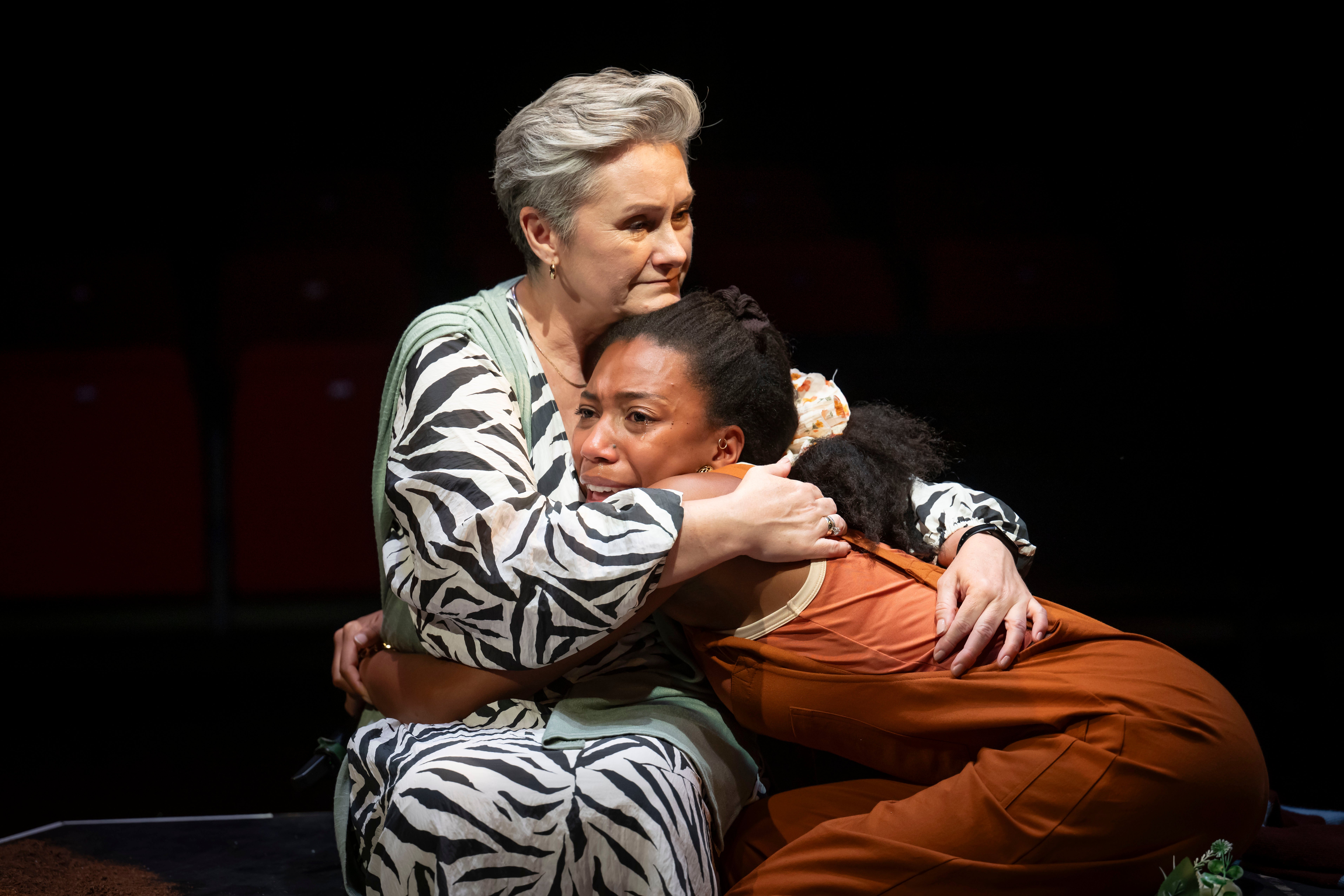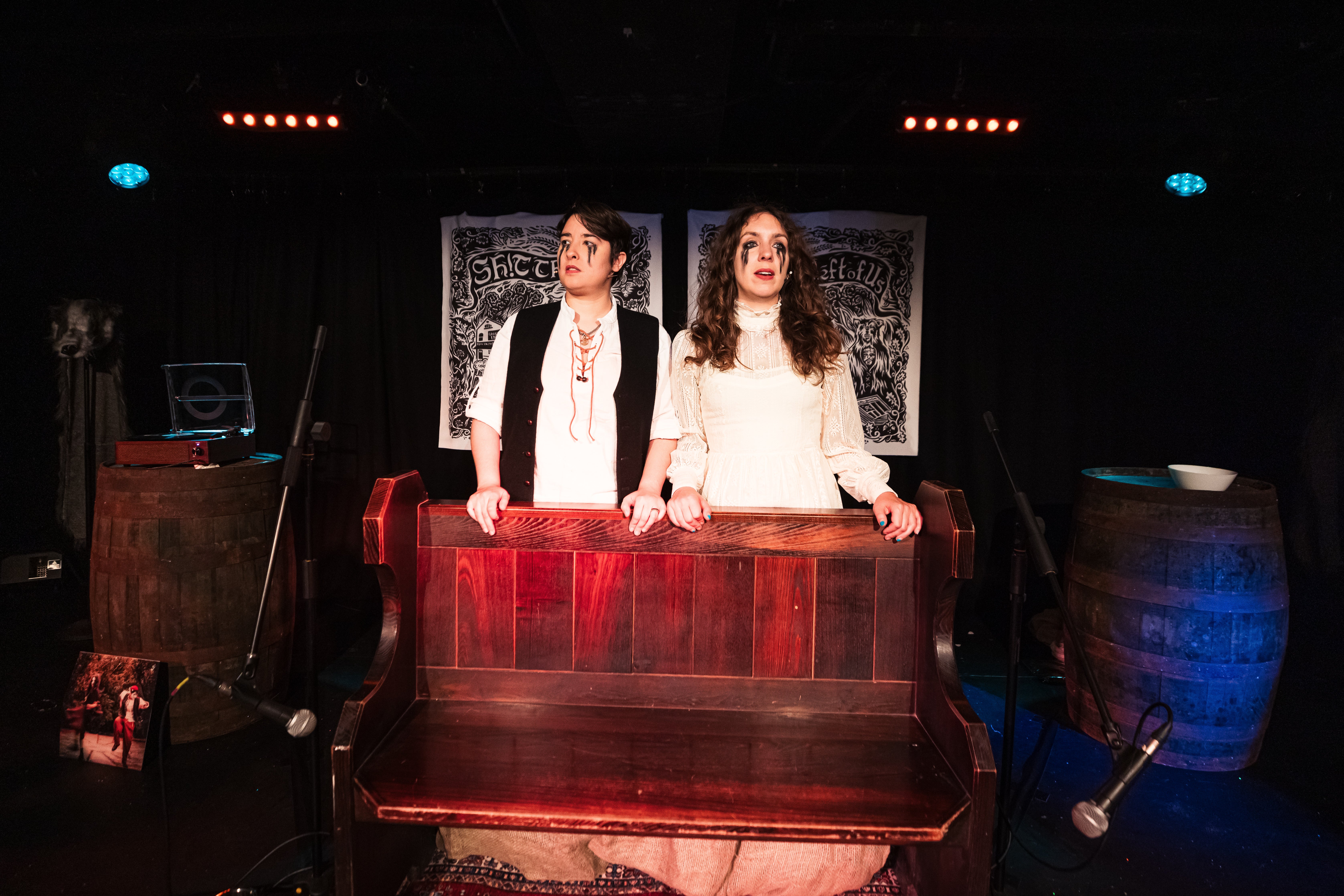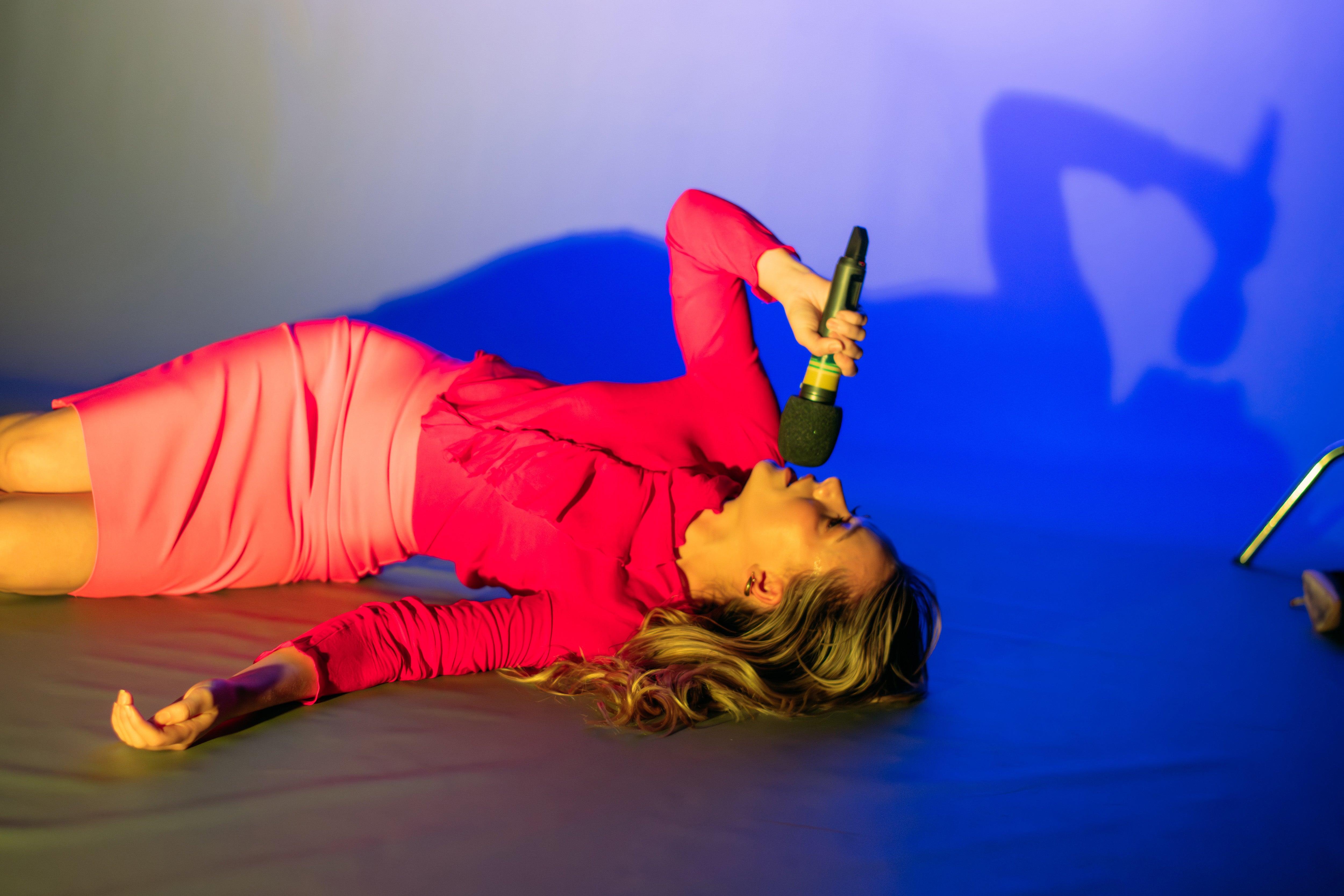Edinburgh Fringe 2024: Amid the endless trauma monologues, there were bright sparks
Performers Baby Reindeer-ed their way through a month of shows about the worst things that have ever happened to them; it sometimes felt like one inescapable, mass anxiety attack. It may not have been a vintage year for the Edinburgh Fringe, writes Tim Bano, but subtle moments of creative brilliance could be uncovered too

Seeing shows at the Edinburgh Fringe this year felt frequently like being in one big, inescapable, mass anxiety attack. Collective trauma was the consensus as artists tackled crises on every scale, from tiny ones (bedbugs, gummy bears) to the biggies: housing, cost of living and climate.
Trauma was expressed through comedy, through dance, through circus, through clowning and, most of all, through monologues. So many monologues. Monologues about everything from ADHD to zoology, as performers Baby Reindeer-ed their way through a month of shows, re-enacting the worst moments of their lives for our edification. It was a lot.
Things felt foreboding from day one: a massive power cut caused Underbelly’s iconic inflatable purple cow to deflate. I sipped a diet Irn Bru in a bar in total darkness until the waiter told me there was no way for me to pay and I should probably leave. It could only go up from there, right?
Well, after a run of run-of-the-mill trauma monologues, and despite murmurs from many artists that it’s the hardest Fringe they’ve done – this was on day two – things did begin to look up. While there weren’t any runaway successes of the Baby Reindeer kind, there were many excellent shows, and a few that popped off, like Julia Grogan’s raucous tale of female friendship and sexual violence Playfight, Sam Edmunds’s romp through Luton in the early Noughties The Chaos That Has Been and Will No Doubt Return, Sh!t Theatre’s very beautiful and very, very sad meditation on grief and folk music Or What’s Left of Us, and Brian Watkins’s fantastically weird monologue Weather Girl.
Weather Girl was an extraordinary, almost mythical, ride through a Californian wildfire, performed by Julia McDermott – easily one of the best performances at the Fringe this year – as a breezy weather presenter struggling to maintain her onscreen smile in the face of a burning world. The writing was on another plane – sharp, brutal, enjoyably weird – but what came across most was a gulping, rage-filled sense of panic at the state of the planet. It was a monologue, but didn’t feel like one. It felt like a writer trying to work out a way that language could hold the enormity of our impending doom.
A similarly searching piece was Stuffed, a clown show about food banks, from the brilliant theatre company Ugly Bucket. As unpromising as the premise sounds, it was an astonishing piece of theatre, questioning the decisions that have led to such colossal need for food banks in the UK. In a show about the inadequacy of old forms of storytelling, there were skits about pigeons, politicians, poverty, and an unsettling seesawing between daft humour and devastating anger. I’ve never seen anything like it.
And while there were so many trauma hours about people’s personal problems, from the morass of self-absorption there were some exceptional exceptions. My Mother’s Funeral: The Show by Kelly Jones was about a skint working class writer who wants to write a show about gay termites in space but is forced to write one about her mother’s funeral in order to pay for her mother’s funeral. Funny and satirical, it was also a biting stocktake of the arts industry, and how difficult it is to make a show about anything other than your trauma if you’re working class. It’s how the model works.

At the other end of the spectrum there were some spectacularly joyful and silly shows which provided necessary relief: Virginia Gay’s queer retelling of Cyrano de Bergerac was a feelgood highlight, and Sorry (I Broke Your Arms and Legs) by the brilliant company Maybe You Like It took the form of a PowerPoint presentation from a school student, apologising for breaking his classmate’s limbs. Others combined silliness with important points, like Nick Cassenbaum’s comic caper Revenge (After the Levoyah) about two Jewish siblings who get caught up in a plot to kidnap Jeremy Corbyn. Provocative idea, but a brilliant (and funny) exploration of life as a young Jewish person today.
The new musicals on offer at the Fringe this year were mostly trauma free. Some induced trauma, like the wearying cash-ins: a musical based on Silence of the Lambs (OK), a musical based on Come Dine with Me (bad), a musical based on the Glasgow Willy Wonka experience (baddest). And what does it say about, well, everything that there were TWO musicals about Gwyneth Paltrow skiing herself into an optometrist? But there were great new shows, too, especially Flo and Joan’s superb musical about Andrew Lloyd Webber, One Man Musical, in which George Fouracres pretended to be the impresario in a beautifully ridiculous way while singing, blustering and ruminating on relevance and wealth.
This year continued the trend of comedians defecting to the theatre section of the programme, with Adam Riches’s brilliant exploration of masculinity through the lens of tennis legend Jimmy Connors and Ivo Graham swapping endearing triviality for guilt-riddled nostalgia-fest in Carousel, a lovely piece of storytelling.

As far as stand-up went, the biggest comedy names (Sue Perkins, Mark Watson, Tim Key) stuck to work-in-progress shows or limited runs, and the decline in superstar headliners at the Fringe continued. But there were plenty of fantastic, familiar faces in the likes of Rose Matafeo and Jessie Cave, both with very funny, very overshare-y shows. Sarah Keyworth’s My Eyes Are Up Here, a story of gender identity and top surgery, was one of the warmest hours at the Fringe, and Ania Magliano’s latest piece, Forgive Me, Father was a masterclass in conversational comedy, finding the absurd in the everyday.
As far from the everyday as possible was Joe Kent-Walters’s foul creation Frankie Monroe, the MC of a working men’s club, face smeared with Sudocrem, who dragged his audience halfway to hell in a brilliantly assured show. Similarly filthy and deranged was Patti Harrison, star of Tim Robinson’s I Think You Should Leave, whose show My Huge Tits Huge Because They Are Infected Not Fake was just properly weird in the best way possible. Plus pleasant daftness came from 6ft 7in identical twins Pear with an effortlessly funny hour of sketches, and a brilliant farewell (or so they claim) show from Sheeps with The Giggle Bunch (That’s Our Name For You).
Emma Sidi’s take on Partygate report-writer Sue Gray was absolutely joyous, as Sidi turned the notoriously press-averse civil servant into a foul-mouthed boozer, and clown legend Natalie Palamides turned herself into two people in the glorious Weer, splitting herself down the middle to play both partners in a strained relationship.

So was Edinburgh 2024 a vintage year? Yes and – wait for it – no. It really did feel like the first time the Fringe had returned to full frenzy since the pandemic. The streets were impassably thick with tourists again, the programme stuffed with 3,500 shows – more than last year, still fewer than 2019’s high point. There were moments when tempers flared – prickling social media exchanges between artists and critics – and everyone is probably already swearing they’ll never do it again.
But what stood out the most for me was maybe just the small things in a very big mass of chaos. On a whim one afternoon, with an unexpected spare hour, I slipped into a monologue (yes, another one) called Scaffolding by Lucy Bell. Sheridan has climbed some scaffolding around her church spire and is talking to God about her life: her daughter with complex care needs, the closure of her church, how to make a bomb. It was an enjoyable show, but what stood out was a quiet, profound moment when we were asked to open a sheet of paper from under our seats and read out a series of sentences as if we were the voice of God. Performer Suzanna Hamilton didn’t force anyone to read the prompts, but every single response was read out by a different audience member, a quiet God chorus, a beautiful act of trust in usually silent spectators.
So, yes it was a month filled with monologues and trauma and anxiety. But also, at the same time, in every hour of every day for a month, there were little moments of brilliant creativity happening in converted offices and dripping car parks and impossibly hot leisure centres, all against ridiculous odds.
Join our commenting forum
Join thought-provoking conversations, follow other Independent readers and see their replies
Comments
Bookmark popover
Removed from bookmarks